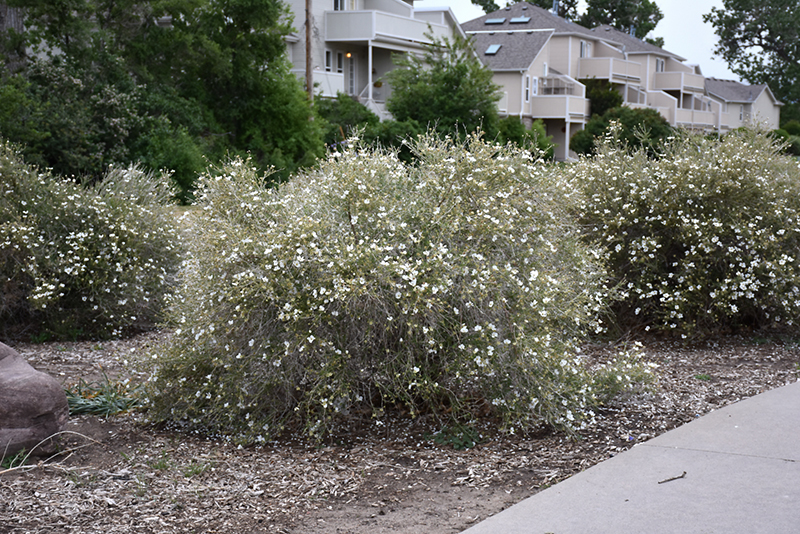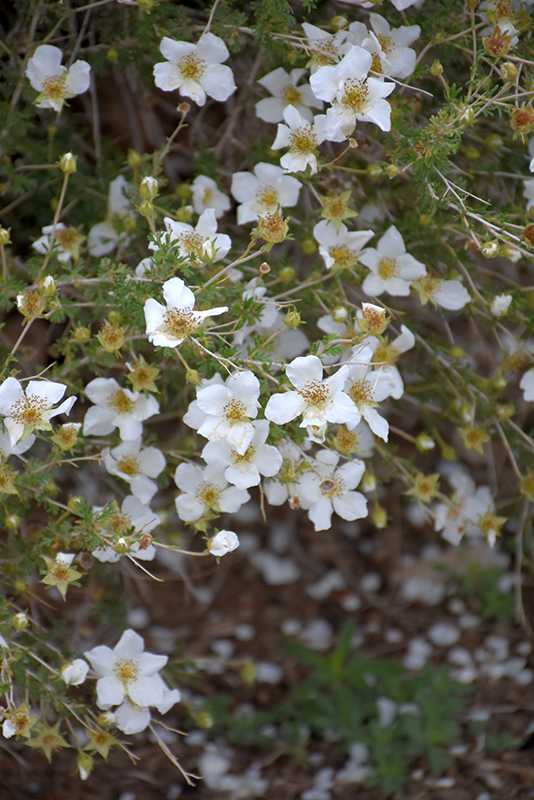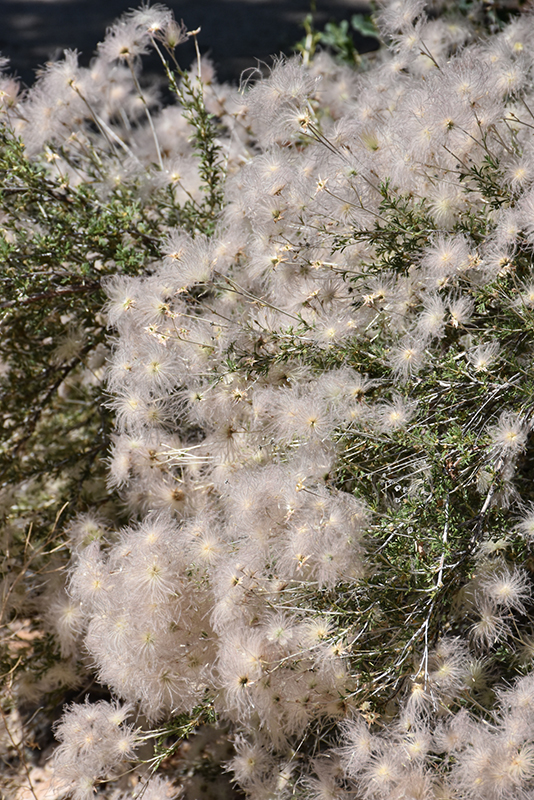Height: 6 feet
Spread: 6 feet
Sunlight:
![]()
Hardiness Zone: 4
Other Names: Ponil
Description:
A showy native western shrub producing single white flowers that set wispy pink seed heads, beginning in late spring, and continuing into summer; very drought tolerant, great for water conservation gardens and erosion control
Ornamental Features
Apache Plume features showy white cup-shaped flowers with buttery yellow eyes rising above the foliage from late spring to early fall. It has attractive green foliage with hints of silver. The small fuzzy ferny leaves are highly ornamental and remain green throughout the winter. The pink fruits are carried on showy plumes displayed in abundance from early summer to early fall. The tan bark and white branches are extremely showy and add significant winter interest.
Landscape Attributes
Apache Plume is a multi-stemmed evergreen shrub with an upright spreading habit of growth. Its average texture blends into the landscape, but can be balanced by one or two finer or coarser trees or shrubs for an effective composition.
This is a relatively low maintenance shrub, and may require the occasional pruning to look its best. It is a good choice for attracting birds, bees and butterflies to your yard, but is not particularly attractive to deer who tend to leave it alone in favor of tastier treats. It has no significant negative characteristics.
Apache Plume is recommended for the following landscape applications;
- Mass Planting
- Hedges/Screening
- Rock/Alpine Gardens
Planting & Growing
Apache Plume will grow to be about 6 feet tall at maturity, with a spread of 6 feet. It tends to fill out right to the ground and therefore doesn't necessarily require facer plants in front, and is suitable for planting under power lines. It grows at a medium rate, and under ideal conditions can be expected to live for approximately 20 years.
This shrub should only be grown in full sunlight. It prefers dry to average moisture levels with very well-drained soil, and will often die in standing water. It is considered to be drought-tolerant, and thus makes an ideal choice for xeriscaping or the moisture-conserving landscape. It is not particular as to soil pH, but grows best in sandy soils. It is somewhat tolerant of urban pollution. This species is native to parts of North America.



